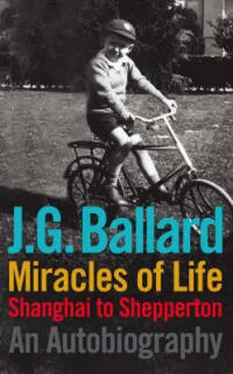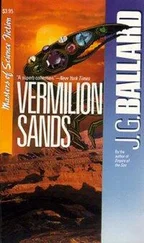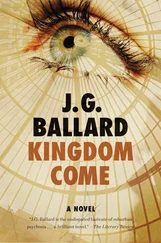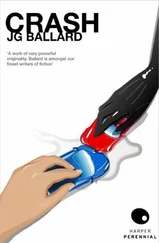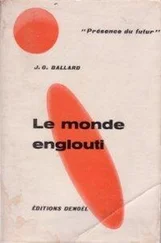One question that readers still ask is: why did you leave your parents out of the novel? When I first began to think about the overall story I assumed that the central characters would be adults, and that children of any age would play no part in the novel. But I realised that I had no adult memories of Lunghua Camp, or of Shanghai. My only memories of life in both the camp and the city were those of an early teenager. I had, and still have, vivid memories of cycling around Shanghai, exploring empty apartment buildings, and trying unsuccessfully to fraternise with Japanese soldiers. But I had no memories of going to nightclubs and dinner parties. Although I spent my time roaming around Lunghua Camp, I had little idea of large areas of adult life. To this day I know nothing about the sexual lives of the internees. Did they have affairs, in the warrens of curtained cubicles that must have been ideal trysting cells? Almost certainly, I assume, especially during the first year when the internees’ health was still robust. Were there pregnancies? Yes, and the few families involved were moved by the Japanese to camps in Shanghai that were close to hospitals. Were there fierce rivalries and gnawing tensions between the internees? Yes, and I observed rows and arguments between both men and women that sometimes came to blows. But I knew nothing about the festering resentments that must have lasted for months if not years. My father was a gregarious man and got on well with most people, but my mother made few friends in G Block and seemed to spend most of her time reading in our little room. Curiously, though we ate, slept, dressed and undressed within a few feet of each other, I have very few memories of her in the camp. And none of my sister.
So, I accepted what I had probably assumed from the start, that Empire of the Sun would be seen through the eyes of a child who became a teenager during war and internment. And there seemed no point in inventing a fictitious child when I had one ready-made to hand: my younger self. Once I decided that the novel would be autobiographical, everything fell naturally into place. In much of the novel I was describing events I could still see in my mind’s eye. There were a huge number of memories that I needed to knit together, and some of the events described are imaginary, but although Empire of the Sun is a novel it is firmly based on true experiences, either my own or those told to me by other internees.
Writing the novel was surprisingly painless. A rush of memories rose from my typescript, the filth and cruelty of Shanghai, the faded smell of deserted villages, even the stench of Lunghua Camp, the reek of overcrowded barrack huts and dormitories, the desperate seediness of what in effect was a large slum. I was frisking myself of memories that popped out of every pocket. By the time I finished, at the end of 1983, Shanghai had advanced out of its own mirage and become a real city again
Empire of the Sun was a huge success, the only one I have known on that scale, and outsold all my previous books put together. It revived my backlist, in Britain and abroad, and drew many new readers to my earlier books. Some were deeply disappointed, writing letters along the lines of ‘Mr Ballard, could you explain what you really mean by your novel Crash ?’ A question with no possible answer.
Other, more sympathetic readers of my earlier novels and short stories were quick to spot echoes of Empire of the Sun . The trademark images that I had set out over the previous thirty years – the drained swimming pools, abandoned hotels and nightclubs, deserted runways and flooded rivers – could all be traced back to wartime Shanghai. For a long time I resisted this, but I accept now that it is almost certainly true. The memories of Shanghai that I had tried to repress had been knocking at the floorboards under my feet, and had slipped quietly into my fiction. At the same time, though, I have always been fascinated by deserts, and even wrote an entire book, Vermilion Sands , set at a desert resort something like Palm Springs. And yet there are no deserts within a thousand miles of Shanghai, and the only sand I ever saw was in the snake house at Shanghai Zoo.
* * *
Most writers dream of having films made of their novels, but for every thousand films visualised and enthused over during the world’s longest lunches only one is ever actually made. The film world is a gaudy balloon kept aloft by enthusiasm, preposterous overconfidence, and all the dreams that money can buy. Film people – producers, directors and actors – are enormously good company, far livelier and more interesting than the majority of writers, and without their enthusiasm and their heroic lunches few films would ever reach the screen.
I was lucky enough to have options taken out on my earlier novels, but unlucky that my career as a writer coincided with the decades which marked the decline of the British film industry. Films based on my novels were lunched, but never launched.
The first time I saw my name (even if mispelled) in the credits of a film came in 1970, with the British release of When Dinosaurs Ruled the Earth . This was a Hammer film, a sequel to the Raquel Welch vehicle One Million Years BC , itself a remake of the 1940 Hollywood original starring Victor Mature and Carole Landis. Hammer specialised in Dracula and Frankenstein films, then much despised by the critics. But their films had tremendous panache and visual attack, without a single wasted frame, and the directors were surprisingly free to push their obsessions to the limit.
I was contacted by a Hammer producer, Aida Young, who was a great admirer of The Drowned World . She was keen that I write the screenplay for their next production, a sequel to One Million Years BC . Curious to see how the British film world worked, I turned up at the Wardour Street offices of Hammer, to be greeted in the foyer by a huge Tyrannosaurus rex about to deflower a blonde-haired actress in a leopard-skin bikini. The credits screamed ‘Curse of the Dinosaurs!’
Had the film already been made? I knew that outfits like Hammer worked fast. But Aida assured me that this was just window dressing, and they had settled on the title When Dinosaurs Ruled the Earth . Raquel Welch would not be available. They were thinking of using a Czech actress who spoke no English, but this didn’t matter since there would be no dialogue in the film. My job was to come up with a strong story.
She steered me into the office of Tony Hinds, then the head of Hammer. He was affable but gloomy, and listened without comment as Aida launched into a chapter-by-chapter account of The Drowned World , with its picture of a steaming, half-submerged London and its vistas of dream-inducing water.
She finished and we waited for Hinds to speak. ‘Water?’ he repeated. ‘We’ve had a lot of trouble with water.’
It turned out that they planned to shoot the film in the Canary Islands. I remembered that the surrealists had made field trips to the Canaries, fascinated by the black volcanic beaches and the extraordinary fauna and flora. All Hammer had seen was the tax incentives.
Hinds asked me what ideas I had come up with. Bearing in mind that the promised contract had yet to arrive, I had given little thought to the project, but on the drive from Shepperton to Soho I had produced several promising ideas. I outlined them as vividly as I could.
‘Too original,’ Hinds commented. Aida agreed. ‘Jim, we want that Drowned World atmosphere.’ She spoke as if this could be sprayed on, presumably in a fetching shade of jungle green.
Hinds then told me what the central idea would be. His secretary had suggested it that morning. This was nothing less than the story of the birth of the Moon – in fact, one of the oldest and corniest ideas in the whole of science fiction, which I would never have dared to lay on his desk. Hines stared hard at me. ‘We want you to tell us what happens next.’
Читать дальше
